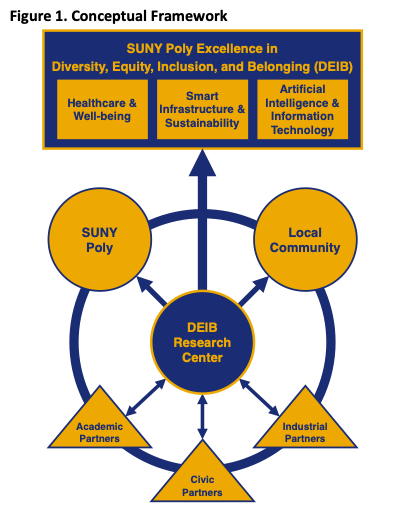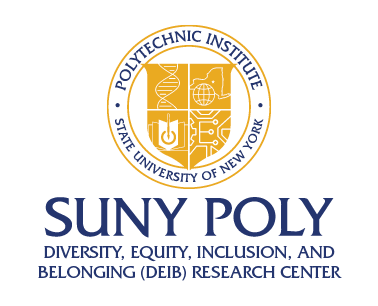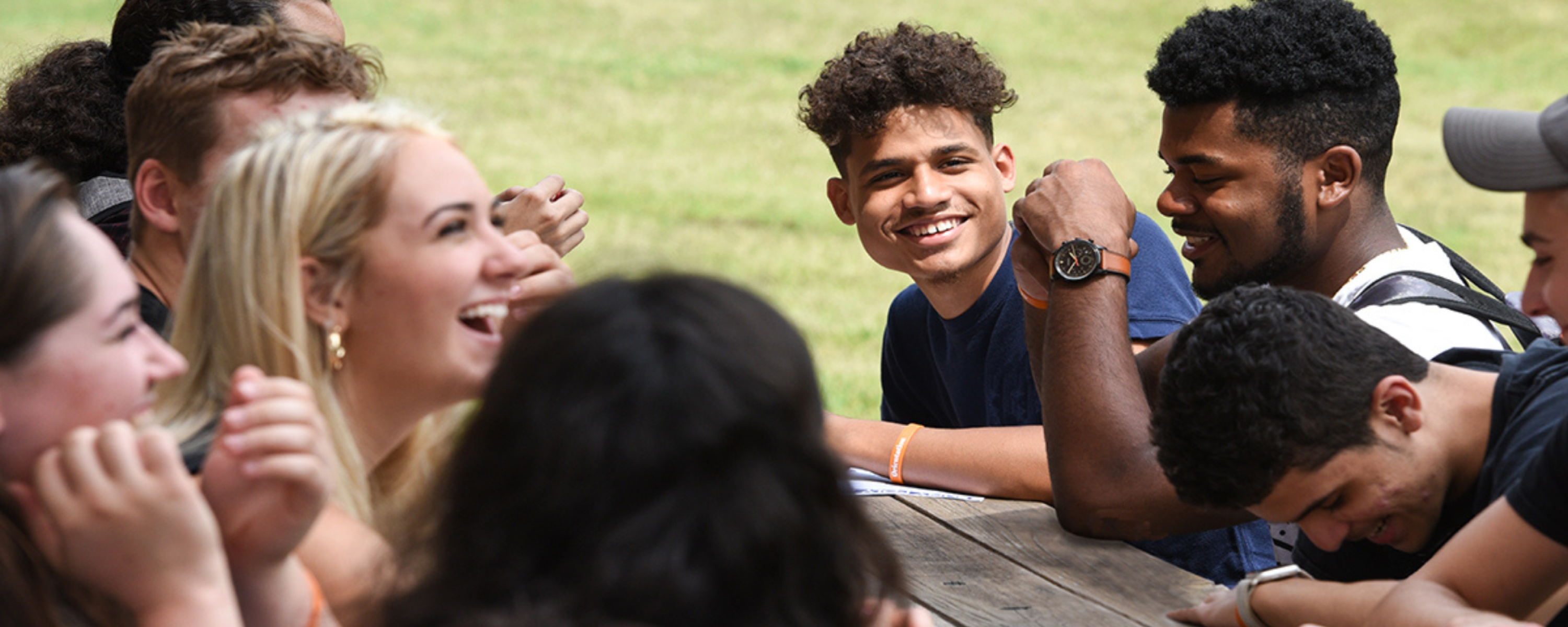Diverse communities around SUNY Poly have undergone dynamic transformations with an increasing refugee population and ongoing economic fluctuations. The recent rise in Research and Development investments in the Mohawk Valley is expected to stimulate socioeconomic renewal and foster the growth of the Science, Technology, Engineering, Arts, and Mathematics (STEAM) workforce in the Rust Belt area. However, rapidly evolving social and environmental conditions can exacerbate barriers to advancement among traditionally marginalized groups, including underrepresented minorities, women, low-income families, and immigrants. As a premier public research-intensive university, SUNY Poly is uniquely positioned to serve as an inclusive community hub that unlocks the full potential of its diverse student body and their families for socioeconomic innovations in the Mohawk Valley and beyond.
The Diversity, Equity, Inclusion, and Belonging (DEIB) Research Center spearheads SUNY Poly’s research, teaching, and outreach efforts for DEIB excellence. As described in Figure 1, the DEIB Research Center (1) cultivates and integrates SUNY Poly’s DEIB resources and network with academic, civic, and industrial partners, and (2) empowers STEAM students, faculty, and staff to achieve DEIB excellence within the campus and surrounding communities. Eventually, the DEIB Research Center creates critical impacts on improving the representation of traditionally marginalized groups at SUNY Poly and within the US STEAM workforce by advancing SUNY Poly’s missions in three thematic areas: Healthcare & Well-being, Smart Infrastructure & Sustainability, and Artificial Intelligence & Information Technology.

Quantitative and Qualitative Research Methods
- Anthropology
- Asian Studies
- Artificial Intelligence Modeling
- Civil Engineering
- Computational Science
- Engineering Technology
- Machine Learning
- Psychology
- Refugee Studies
- Sociology
Consultation/Collaboration on DEIB Research, Teaching, and Service



